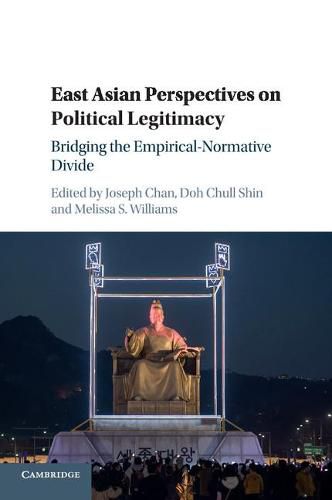Readings Newsletter
Become a Readings Member to make your shopping experience even easier.
Sign in or sign up for free!
You’re not far away from qualifying for FREE standard shipping within Australia
You’ve qualified for FREE standard shipping within Australia
The cart is loading…






What makes a government legitimate? Why do people voluntarily comply with laws, even when no one is watching? The idea of political legitimacy captures the fact that people obey when they think governments’ actions accord with valid principles. For some, what matters most is the government’s performance on security and the economy. For others, only a government that follows democratic principles can be legitimate. Political legitimacy is therefore a two-sided reality that scholars studying the acceptance of governments need to take into account. The diversity and backgrounds of East Asian nations provides a particular challenge when trying to determine the level of political legitimacy of individual governments. This book brings together both political philosophers and political scientists to examine the distinctive forms of political legitimacy that exist in contemporary East Asia. It is essential reading for all academic researchers of East Asian government, politics and comparative politics.
$9.00 standard shipping within Australia
FREE standard shipping within Australia for orders over $100.00
Express & International shipping calculated at checkout
What makes a government legitimate? Why do people voluntarily comply with laws, even when no one is watching? The idea of political legitimacy captures the fact that people obey when they think governments’ actions accord with valid principles. For some, what matters most is the government’s performance on security and the economy. For others, only a government that follows democratic principles can be legitimate. Political legitimacy is therefore a two-sided reality that scholars studying the acceptance of governments need to take into account. The diversity and backgrounds of East Asian nations provides a particular challenge when trying to determine the level of political legitimacy of individual governments. This book brings together both political philosophers and political scientists to examine the distinctive forms of political legitimacy that exist in contemporary East Asia. It is essential reading for all academic researchers of East Asian government, politics and comparative politics.